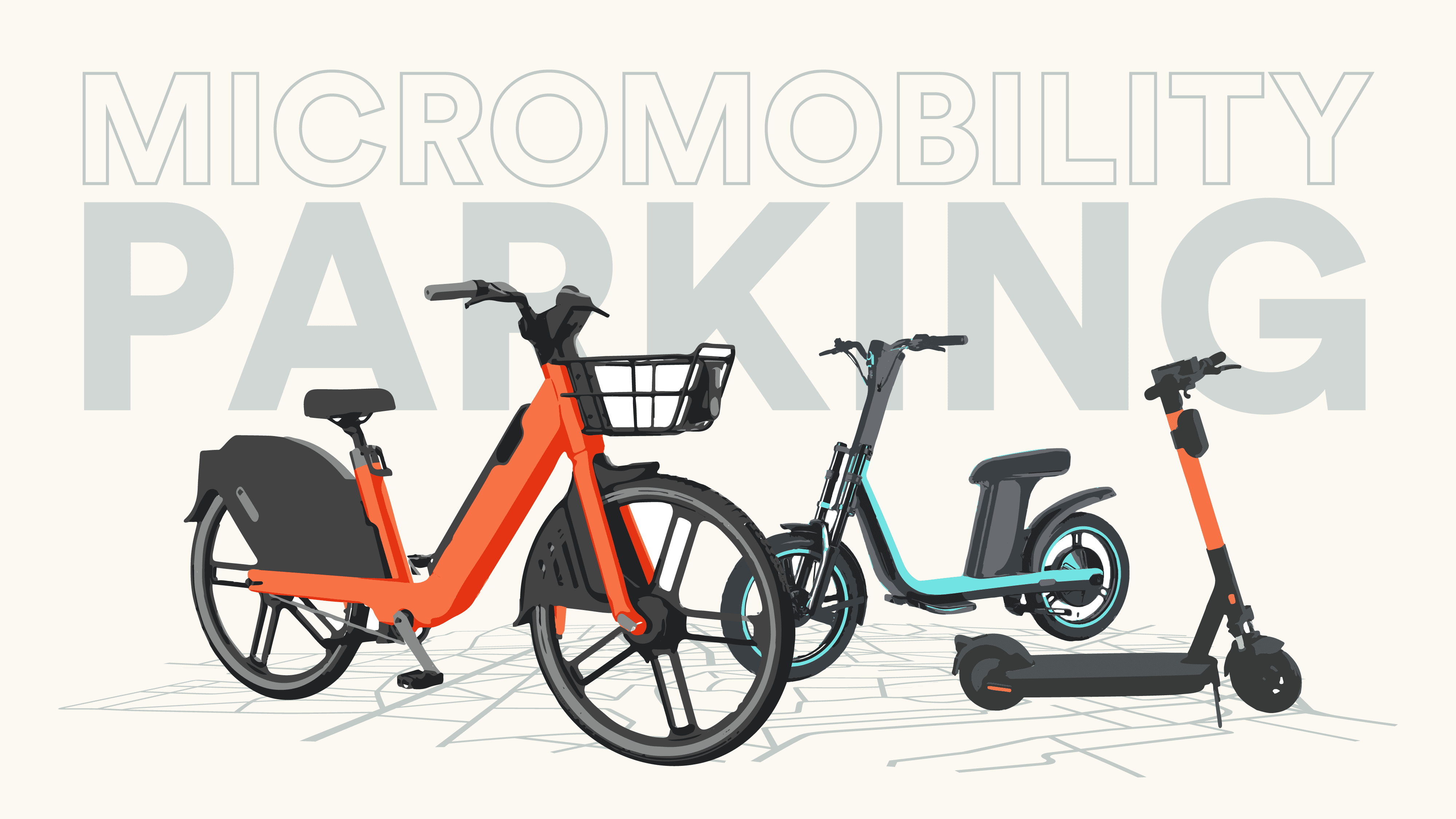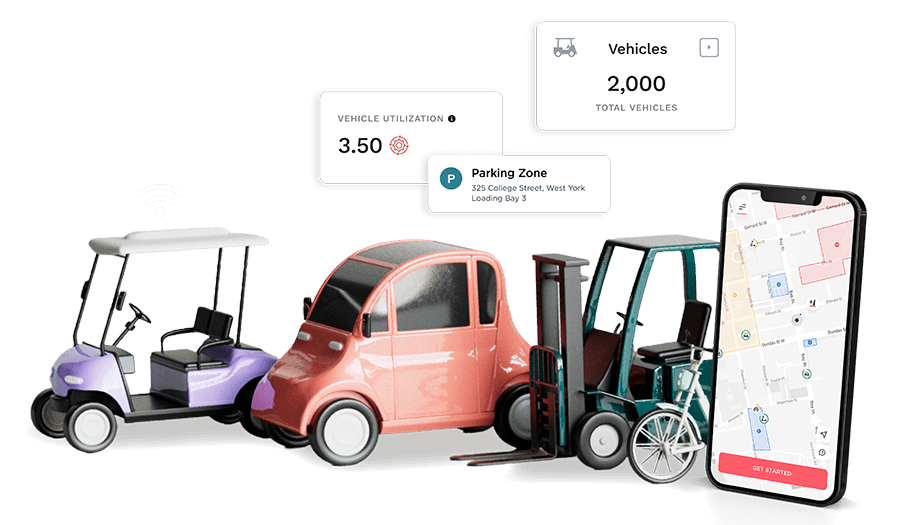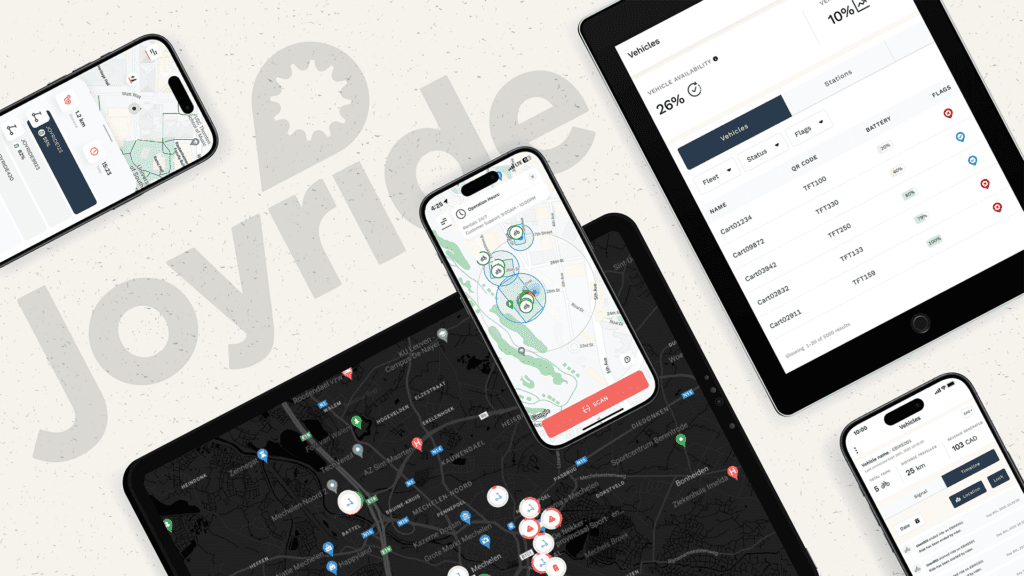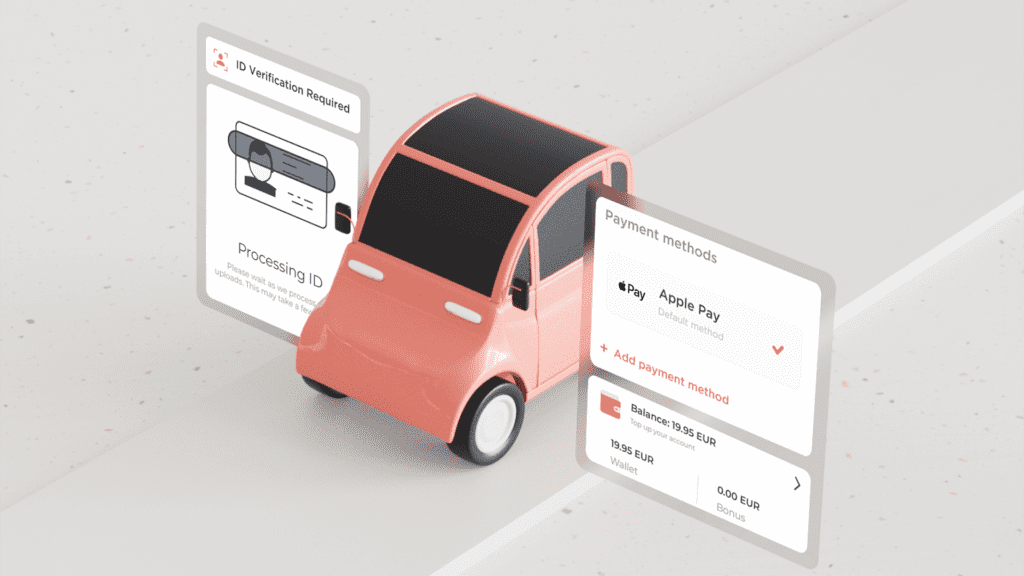Fayetteville, Arkansas is the poster child for micromobility gone right. This fast-growing college town is the second-largest city in Arkansas with a population of just over 100,000. The University of Arkansas campus abuts the city’s downtown to form a dense urban core that is well served by the Razorback Regional Greenway and more than 50 miles of paved trails.
But it isn’t just the market that’s right– it’s the management.
As Mobility Coordinator for the city of Fayetteville, Dane Eifling oversees the city’s permitting and day-to-day management of shared micromobility. The program started two and a half years ago with 250 scooters, since growing to a fleet of 1450 devices operated by two vendors: Veo and Spin. Fayetteville residents and visitors enjoy year-round access to a dockless modal mix of electric scooters, e-bikes and sit-down scooters
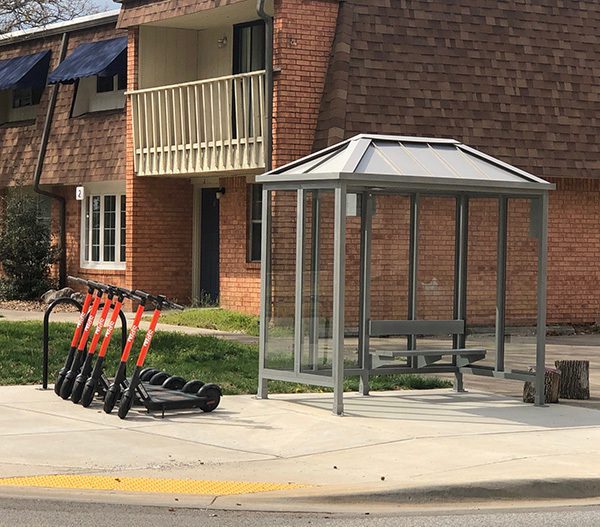
Keeping the ‘free’ in free-floating scooters
Despite many cities cracking down on scooter parking, Fayetteville’s shared micromobility system has remained mostly free-floating. Where a station-based system requires a rider to rent and return to a docking station, Dane explained that “a free-floating or dockless system is a lot more flexible.” Riders can choose their starting and end points more freely, and based on the destination that they’re trying to get to. He added; “We’ve been lucky because we were spared some of the intense oversaturation of our market with scooters. We were able to regulate how many scooters were permitted in Fayetteville and how many vendors we have.”
In the case of Veo and Spin, both have dedicated operations managers who live in the city. Dane pointed this out as an advantage for independent operators in the RFP process. A field team that understands local culture is always preferred.
Starting small also has its advantages. Gradually scaling up the number of vehicles allowed time for the Fayetteville community to learn and adapt to new regulations. According to Dane, “It’s a lot easier to manage 200 badly parked scooters than 2000”. Using Populus to monitor data trip data, Dane works with a local manager from each vendor to ensure smooth operations. “I’m on a first name texting kind of basis with those folks”, he said in a video interview for Joyride Academy.
Spin and Veo are contractually obligated to correct parking violations within a certain amount of time, but most issues are fixed within the hour. “It helps that we have responsible vendors with dedicated staff.” For other higher-level issues, such as contracts or ordinance, Dane checks in with a government policy liaison at each company as needed.
Parking karma
It should be pretty obvious not to leave a scooter in the middle of a trail or sidewalk, but whether by mistake or intentional mischief, Fayetteville has had its fair share of scooter clutter. Dane’s approach is empathetic to both the riders and the operators.
“Fayetteville has a nicely paved trail network and scooters were being left in the middle of long stretches of trail, making them inaccessible for the companies to retrieve them and unlikely to be rented again.” The solution was to add linear ‘no-parking’ geofence zones along some of the longer, less accessible sections of trail.
Geofencing solves a large percentage of parking problems, but Dane advised that “it should be your first option, but it shouldn’t be your only tool.” In addition to the no-ride zones, parking corrals and concrete pads installed by the city have been extremely successful. “It’s a modest investment,” Dane said, “but it helps legitimize the program when people see a proper parking zone. Putting some effort and thought into it–the operators really appreciate it, and the riders take it seriously.”
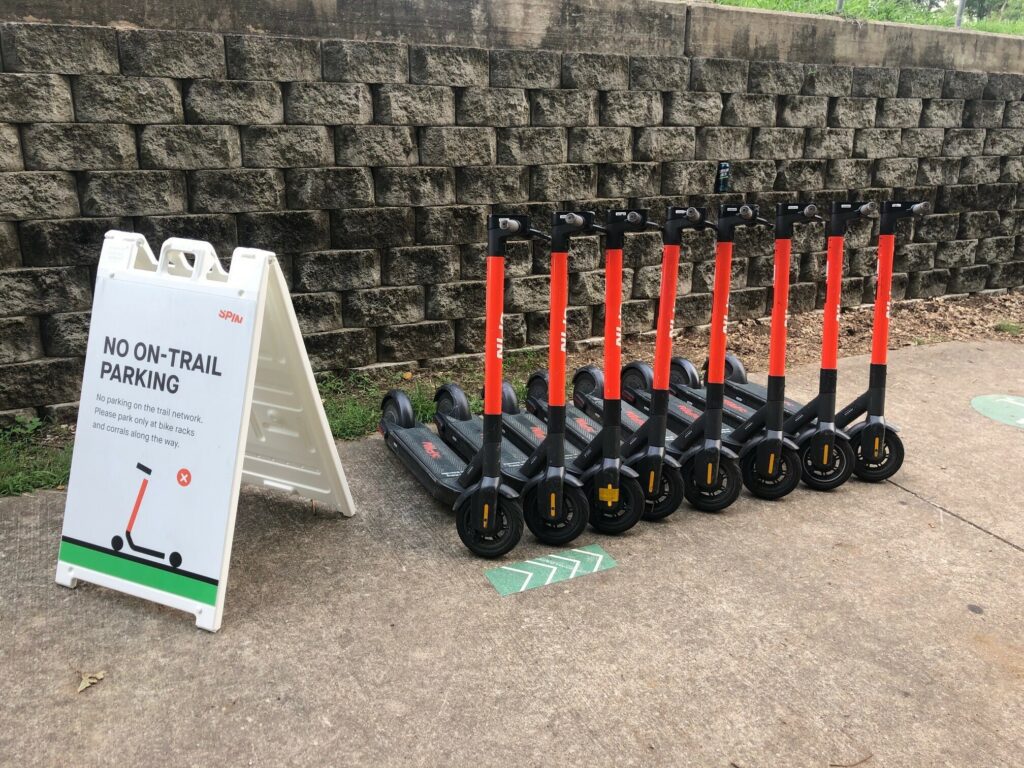
The city and operators also work together to make reporting as transparent as possible. Parking issues flagged on the operator dashboard are available to the field technicians, and when a technician encounters a poorly parked scooter, a simple vehicle scan replaces the need to file a report. The operations management team can then identify the last associated user and send them a warning. Dane candidly added that when it comes to scooter parking “there will always be a certain amount of chaos and unpredictability”. “There’s no ‘silver bullet,’” he said, “but upping the number of warnings sent out has generally resulted in more appropriate parking.”
No need to micromanage micromobility
With this approach, Dane described the network of scooter hubs and designated parking in Fayetteville as “pretty organic or opportunistic.” Spin and Veo are encouraged to work with private property owners such as restaurants, hotels and apartment complexes to stage scooters on their premises. Other hubs are allocated on city property. “We know there is a huge demand at certain trailheads, so we’ve used some of the permit fees to pour concrete and designate that as a hub for the operators to use for parking.”
The caveat is the University of Arkansas, which has the highest demand density. To manage the concentration of vehicle usage in this area, both Spin and Veo use geofencing to enforce mandatory parking areas on campus. Scooters and e-bikes are corralled into 70-80 designated parking zones, most of which are just a short walk to class and other key destinations. “It was a learning curve for the riders at first”, said Dane, but overall people adapted well. “It’s easy once you know where the hubs are”.
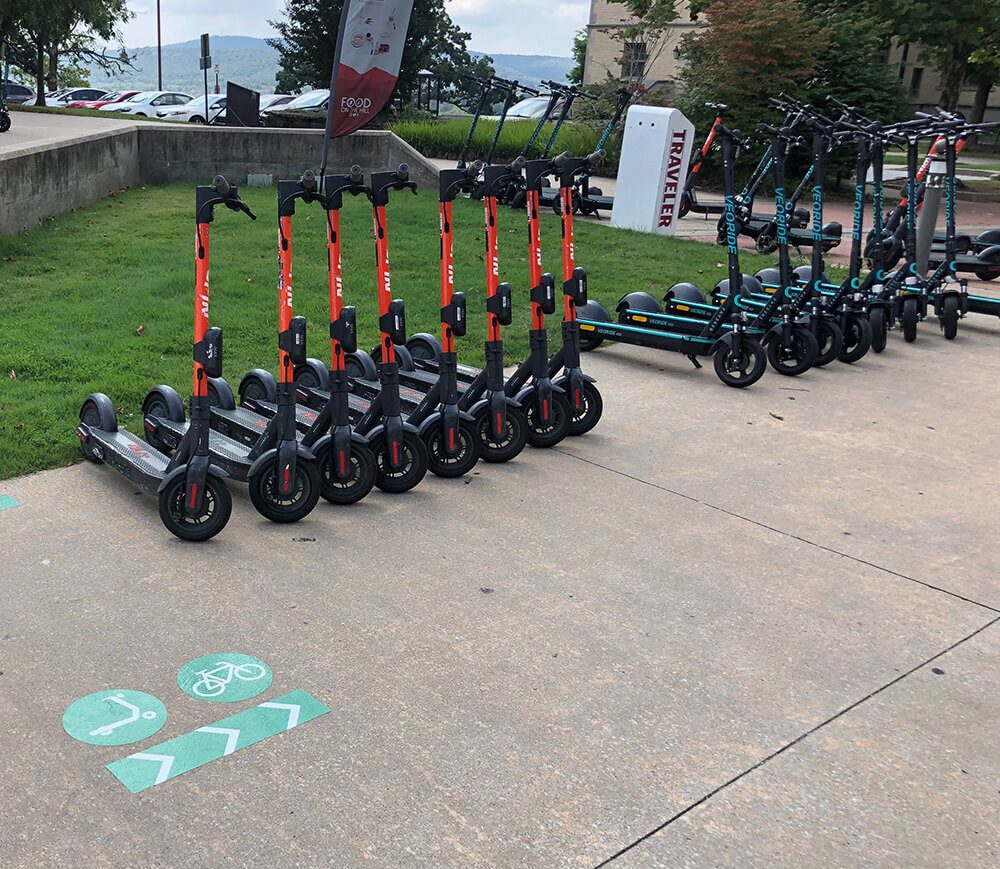
The need for a more controlled environment on the campus makes sense, but out in town, points of interest are further and further apart. “It’s not really feasible to try to designate parking zones throughout the entire city because there are thousands of locations where people may want to end a ride”, Dane said. “People may be able to park in locations that are perfectly suitable”.
When asked if there was a device cap for the number of scooters allowed at each hub, Dane’s reply was surprisingly casual. “If you can fit it in the spot, then go for it.” He added that of course they don’t want scooters spilling over into the grass or sidewalks, but it hasn’t been an issue–even with two vendors. Both companies are conscious not to overstock, and Dane mentioned he’s even seen Spin and Veo employees upright the tipped over scooters of their competitor.
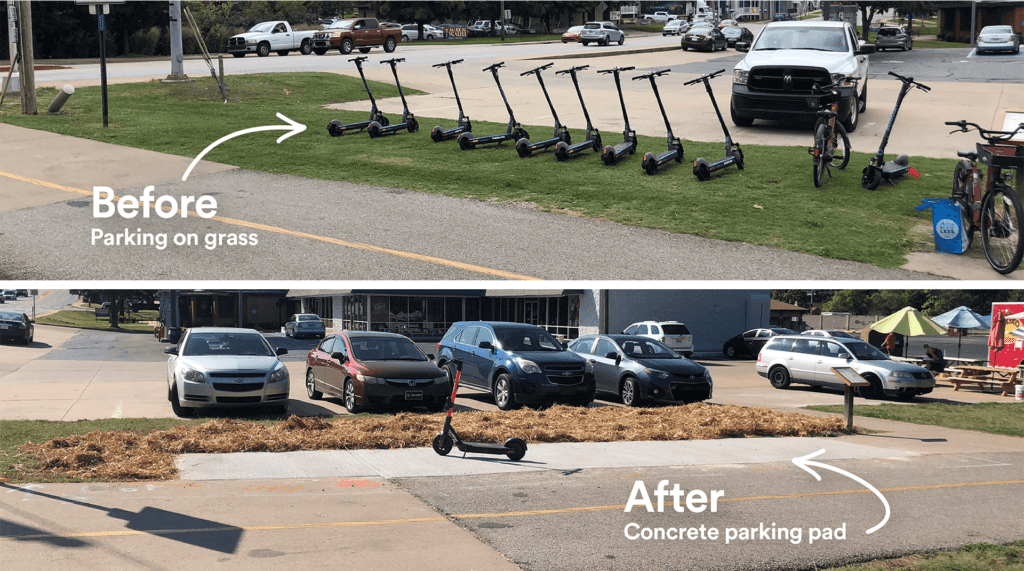
Expanding the system
With over 400,000 rides in 2022, it looks like micromobility is at home in Fayetteville. The city is working to install new infrastructure like bike trails and paved parking zones, and expand the area. “The easy money is to saturate the campus and downtown, but there are some underserved areas in town,” Dane said. “Typically, we encourage the vendors to expand into less dense or low-income areas. We’re not trying to do that at their expense… but always looking for new opportunities to expand zones with less transit access or more car dependency.”
Dane is also interested in using the permit fees collected to fund projects which help multiple groups in the community. He spoke passionately about the need for sidewalk access ramps. “It’s very scooter-friendly, and it also helps folks with strollers, wheelchairs and visual impairments.”
Dane’s final piece of parking wisdom was directed to city officials considering a shared micromobility system. “Unfortunately, some cities are so worried about parking that they are hesitant to start a program, or they are so hung up on it that they won’t seek ways to say ‘yes.’” Cities need to accept that if they want to get to a point where they are not totally car-dependent, they are going to have to compromise. “You might have to see a scooter on the grass, and that is not the end of the world. Having a community where everyone has to drive everywhere–that to me is something you shouldn’t be willing to accept.”
How to plan parking for shared micromobility
Ensuring that vehicles are parked properly not only keeps sidewalks and streets clear, but also prevents accidents and strengthens the positive image of shared mobility. Building upon research from cities, consulting firms and shared mobility service providers, this new course on Joyride Academy will guide you to plan an effective parking strategy for an e-scooter or bike share service.
Click here to start learning!

Dane began his work at the City of Fayetteville in 2014. In 2020, he became the City’s first Mobility Coordinator, managing micromobility and traffic calming programs, bike and pedestrian planning, as well as efforts to improve transit and overall transportation safety in the community.
Dane is a Fayetteville native, a Navy veteran and has a BA in Human Geography from San Francisco State University.

